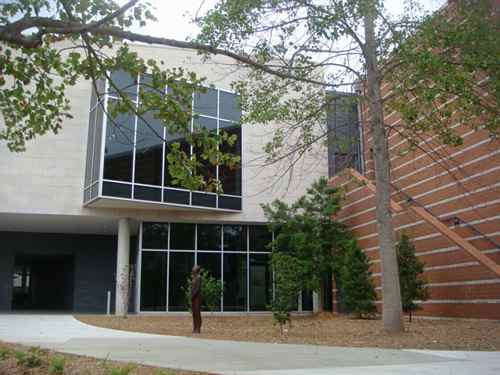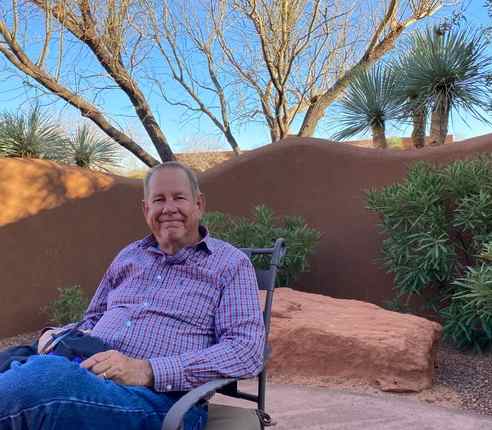
Resource Library: an archival publication
Notice:
Resource Library has amassed considerable information covering many artists and topics. In late 2016 Traditional Fine Arts Organization (TFAO), publisher of Resource Library, changed focus away from adding additional articles and essays. TFAO is instead concentrating on furthering breadth and depth of information from other sources to place in Topics in American Art. In early 2017 TFAO added hundreds of additional museums to it's list for ongoing study. Find the covered museums here: A-C D-G H-L M-Q R-S T-Z.
For the indefinite future TFAO plans for Resource Library to remain inactive while accumulating data for Topics in American Art.

(above: Georgia Museum of Art, May, 2011. Photo © John Hazeltine)
Resource Library is an archival publication. It is a component of the TFAO Free Online Digital Library. Written facts provided by sources and accompanying images are not materially altered by Resource Library at time of publication. Please also see sections on Acquisition and deselection of content and Durability and protection of content within the TFAO Digital Library. However, factual errors in content provided to Resource Library - at the time of original publication of articles and essays - are of concern.
All email, street and post office box addresses, URLs and phone numbers, and other contact information cited in articles and essays, are included as facts subject to this policy. When Resource Library publishes over time more than one article concerning an institution, there is created as an additional resource for readers a sub-index page containing links to each Resource Library article or essay concerning that institution, plus available information on its location and other descriptive information. When such information for an institutional source changes, upon proper notification to Resource Library, the sub-index page for the institution will be updated. For lists of sub-index pages please see the Art Museum, Gallery and Art Center index and the Academies, Associations, Ateliers and Societies index.
On occasion, a third party (neither Resource Library or its original source) may wish to challenge the accurateness of content at time of original publication.. Resource Library may ask the challenger if he or she wishes to have the content of a challenge letter published as an editor's note below the text in the article containing the challenged facts. If the challenger emails to Resource Library a challenge he or she wants publicly posted, at Resource Library's sole discretion it may elect to publish the challenge. If Resource Library agrees to have the challenge posted, the challenger's contact information including name and address must be posted for the benefit of the original source, students and scholars. Furthermore, in no event will the contact information posted concerning the challenger be less than the contact information posted concerning the original source. Besides the name of the challenger, such information may necessarily include street address, postal box address, email address, website address, and phone number.
When crafting a challenge email letter, the challenger MUST specify the URL in Resource Library where the disputed fact was found. The challenger is also encouraged to reference where similar text is located in all paper-printed and other online publications.
The challenge email letter must include express permission in order for Resource Library to publish the letter.
TFAO and Resource Library assume no responsibility for the content of challenge letters. Once published online, in Resource Library's sole discretion the challenge letter may be permanently retained on its site. The challenger should consider that entities other than Resource Library will likely permanently record the letter once it is posted online. Before sending a challenge email letter to Resource Library, the challenger should carefully consider legal risks including actions by third parties against him or her as a result of publication of a challenge letter.
Protection of the integrity of an author's content
When Resource Library is notified by a party, other than a named author, of an alleged errata in the author's previously published article or essay, extensive caution is taken to protect the integrity of the author's content. For a list of named authors please see Author Study and Index.
Challenges to right to publish materials
Although an infrequent occurrence, from time to time Resource Library's right to publish selected materials is challenged. Online publication of exhibition-related publicity texts and images plus other images and texts sent to Resource Library by sources such as museums may be challenged at a later date by third parties claiming to be copyright holders or their representatives. Those third parties may claim that related licenses or permissions were incomplete, lapsed or were granted to Resource Library or its sources of materials in error. Third parties may seek royalty fees. Third parties may claim that Resource Library obtained copyrighted materials from sources other than Resource Library's legitimate sources without consent and later published them. Staff of museums and other sources may decide upon reflection that they sent materials to Resource Library in error. Permissions provided directly to Resource Library by parties claiming to be copyright holders may be challenged at a later date by themselves or others as being incomplete or granted in error. Incomplete permissions could arise from lack of knowledge of the existence of multiple copyright holders. Permissions granted in error could arise from copyright holders having an incomplete understanding of how their materials would be used or permissions granted by parties who are not in fact the true copyright holders.
In any of the above cases, or others where there is contention about the use of copyrighted materials, Resource Library may elect to remove the related text or image from Resource Library until issues are resolved or retain the contested image or text online during the resolution process.
See Submitting materials for more information.
Further use of editor notes
As Resource Library gains new information through its ongoing research and catalogue development that is relevant to a previously published article or essay, it may elect to add the information within a new or previously created editor's note. Editor's notes are placed below original texts.
Material factual content provided by publicity sources
Resource Library usually does not materially alter written content provided by publicity sources (content without named authors) without consultation with them. This consultation, for example, may occur when Resource Library obtains versions of news releases with conflicting information, or facts in news releases that conflict with information on the source's Web site. Also, Resource Library does not inject editorial opinion into texts provided by institutions for publicity purposes. Resource Library performs editing for format and style as further explained in its Content Presentation Guidelines. Images provided by text sources may be added to previously published publicity articles as the images become available.
Individual character accuracy rate
Resource Library strives to maintain a 99.995% individual character accuracy rate in online publishing of scholarly texts as part of its Content Presentation Guidelines.This rate of fidelity to the author's original text is accomplished through a combination of software and human proofreading.
Removal of non-written content at Resource Library's discretion
Resource Library reserves the right to remove previously published non-written content at its discretion. When accessing previously published articles, essays and sub-index page containing links to each Resource Library article or essay concerning an institution, Resource Library may review related images including photos of artworks, persons, buildings, pages of brochures and books, other photos and graphics published in connection with those materials. Depending on factors such as the context in which the images are placed within pages or the circumstances under which the images were provided, Resource Library may remove certain previously published images. For example, removal may occur because of concern that an image not integral to text provided by a named author might be considered misleading or offensive to others at a later date.
Because of Resource Library's stringent policies of acquisition of content, it contains information from excellent sources. Scholars, teachers, students, collectors and others find comfort in the reputation of Resource Library's sources.
Correspondence to Resource Library may be directed
to: ![]()
Go to:
![]() Return to home page
of Resource Library
Return to home page
of Resource Library

About Resource Library:
Resource Library is a free online publication of nonprofit Traditional Fine Arts Organization (TFAO). Since 1997, Resource Library and its predecessor Resource Library Magazine have cumulatively published online 1,300+ articles and essays written by hundreds of identified authors, thousands of other texts not attributable to named authors, plus 22,500+ images, all providing educational and informational content related to American representational art. Texts and related images are provided almost exclusively by nonprofit art museum, gallery and art center sources.
All published materials provide educational and informational content to students, scholars, teachers and others. Most published materials relate to exhibitions. Materials may include whole exhibition gallery guides, brochures or catalogues or texts from them, perviously published magazine or journal articles, wall panels and object labels, audio tour scripts, play scripts, interviews, blogs, checklists and news releases, plus related images.
What you won't find:
User-tracking cookies are not installed on our website. Privacy of users is very important to us. You won't find annoying banners and pop-ups either. Also, our pages are loaded faster without cookies. We want you to view Resource Library content as quickly as possible. Resource Library contains no advertising and is 100% non-commercial. .
(left: JP Hazeltine, founding editor, Resource Library)
 Search
Resource Library for thousands of articles and essays on American
art.
Search
Resource Library for thousands of articles and essays on American
art.
Copyright 2003-2018 Traditional Fine Arts Organization, Inc., an Arizona nonprofit corporation. All rights reserved.